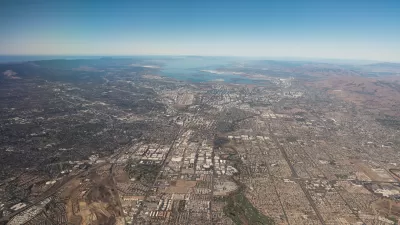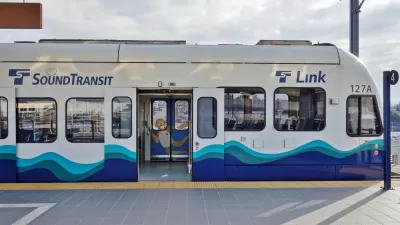Bay Area tech companies are increasingly opening offices in downtown San Francisco, a significant change from the development pattern of the last ten years.
"Autodesk software engineer Hawkeye Parker would have to drive more than 20 miles north, crossing the Golden Gate Bridge into Marin County, if he worked at his company's headquarters in San Rafael, Calif. Instead, 37-year-old Parker takes a seven-minute train from his home in San Francisco's bustling Mission District to the design-software maker's outpost on the city's eastern edge."
"Put simply, San Francisco residents "hate commuting," says Autodesk (ADSK) Chief Executive Carl Bass. The $2 billion-a-year company, which houses 275 of its 7,000 employees at One Market St. in San Francisco, thinks customers prefer the city to the suburbs, too."
"Autodesk is one among a raft of tech companies, including Google (GOOG), Microsoft (MSFT), and newer players like professional networking Web site LinkedIn, striving for that same San Francisco symbiosis. These companies have long occupied suburbs to the south, east, and north of the city. Now they see expansion downtown as a way to attract and retain some of the brightest talent, quicken the travel time to meetings, and impress customers from around the world."
"The move also reflects a larger national trend toward urbanization that's seeing many workers in their twenties and thirties eschew suburbs for hubs like San Francisco, Boston, and Atlanta. While the overall economy is slumping, and industries like banking and auto making are cutting back on staff, tech companies are still hiring and competing for job candidates."
Thanks to Christopher Corbett
FULL STORY: I Left My Staff in San Francisco

Planetizen Federal Action Tracker
A weekly monitor of how Trump’s orders and actions are impacting planners and planning in America.

Map: Where Senate Republicans Want to Sell Your Public Lands
For public land advocates, the Senate Republicans’ proposal to sell millions of acres of public land in the West is “the biggest fight of their careers.”

Restaurant Patios Were a Pandemic Win — Why Were They so Hard to Keep?
Social distancing requirements and changes in travel patterns prompted cities to pilot new uses for street and sidewalk space. Then it got complicated.

Platform Pilsner: Vancouver Transit Agency Releases... a Beer?
TransLink will receive a portion of every sale of the four-pack.

Toronto Weighs Cheaper Transit, Parking Hikes for Major Events
Special event rates would take effect during large festivals, sports games and concerts to ‘discourage driving, manage congestion and free up space for transit.”

Berlin to Consider Car-Free Zone Larger Than Manhattan
The area bound by the 22-mile Ringbahn would still allow 12 uses of a private automobile per year per person, and several other exemptions.
Urban Design for Planners 1: Software Tools
This six-course series explores essential urban design concepts using open source software and equips planners with the tools they need to participate fully in the urban design process.
Planning for Universal Design
Learn the tools for implementing Universal Design in planning regulations.
Heyer Gruel & Associates PA
JM Goldson LLC
Custer County Colorado
City of Camden Redevelopment Agency
City of Astoria
Transportation Research & Education Center (TREC) at Portland State University
Camden Redevelopment Agency
City of Claremont
Municipality of Princeton (NJ)





























